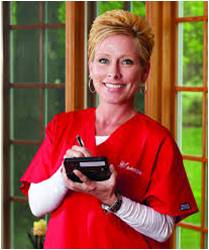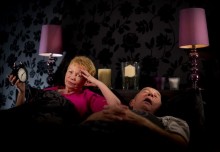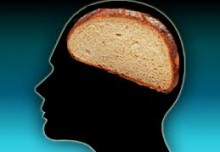 If you are a caregiver to an older loved one, I’ll bet that one thing you probably watch closely is their behavior or demeanor. Do they remember important facts from yesterday or are they tracking what is said in a conversation? In an age when most people worry about dementia more than mortality itself, everyone is rightfully vigilant for signs of an slip in cognitive function. But what about when the caregiver cannot be there to watch? Our caregiver clients often refer to our geriatric care managers as their eyes and ears. Let me share with you two real life examples of memory issues, but when things were really not what they may have appeared to be after all. And a geriatric care manager’s eyes and ears could make the difference.
If you are a caregiver to an older loved one, I’ll bet that one thing you probably watch closely is their behavior or demeanor. Do they remember important facts from yesterday or are they tracking what is said in a conversation? In an age when most people worry about dementia more than mortality itself, everyone is rightfully vigilant for signs of an slip in cognitive function. But what about when the caregiver cannot be there to watch? Our caregiver clients often refer to our geriatric care managers as their eyes and ears. Let me share with you two real life examples of memory issues, but when things were really not what they may have appeared to be after all. And a geriatric care manager’s eyes and ears could make the difference.
- The Dementia that was an Infection. It started like this. The distance caregiver gets the phone call that the mother was found on the floor of her apartment in an independent living facility. She seems confused and has difficulty with word formation, all signs of classic post-stroke confusion or even dementia. The patient is rushed to the nearest hospital and initial tests rule out stroke. So, perhaps it is dementia? What would you do? A care manager on the scene likely would start with dementia as a consideration, but dementia typically is not a sudden onset predicament. It progresses over time…often a long time. A care manager would ask the medical providers if they have run blood and urine tests? Have the providers done a full body check. Why? to rule out any toxic exposure or an elevated white cell count. In this case, the tests found the woman had an infection that went systemic and dramatically and quickly affected the woman’ mental abilities. So, this turns out to be delirium. The principal difference between dementia and delirium is that the latter is more sudden and often transient. Antibiotics within a matter of days brought her back to normal..
- The Renal Failure that Wasn’t. This one starts with the caregivers in an independent living center noticing that the man seems very tired and does not track what is going on very well. Delirium? A care manager suggests a trip to the physician’s office for a blood test. The test shows renal function that is at virtually zero. No urine is being produced. None. The physician pronounces renal failure and ships the gentleman to the hospital for dialysis, but what does the nephrologist do? The patient is put on an IV drip and quickly given a large quantity of normal saline solution, and kidney function begins to return. Within three days of the start of this rehydration kidney function is returned to near normal. In this case, the patient was a sparse water drinker, and when the condition worsened, the body’s response was to turn off the thirst sensation resulting in real dehydration and renal failure. With the renal issue resolved, the care manager enlists a caregiver who will help the gentleman keep to his medication schedule AND drink four cups of water in the presence of the caregiver each day.
Both of these examples came from distance caregivers, siblings whose older parent lived in another state. Both of these cases also represent one reason that a care manager can be engaged before a crisis. In both cases, had there been a trained professional routinely just “dropping by” to be the eyes and ears for the adult children of the older parent, the infection might have been caught earlier and the renal issues may have been avoided. Geriatric care managers often get the call in an emergency, and they can make a difference in how well the older adult recovers from the emergency. But if you are a distance caregiver to an older adult, you should also consider having a GCM be the eyes and ears present when you cannot be. You might just find that having a sister in Chicago is a great addition to the family.
Charlotte Bishop is a Geriatric Care Manager and founder of Creative Care Management, certified professionals who are geriatric advocates, resources, counselors and friends to older adults and their families in metropolitan Chicago. Please email your questions to info@cr eativecaremanagement.com.






